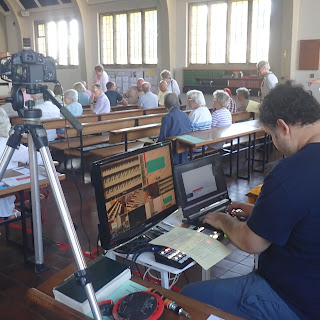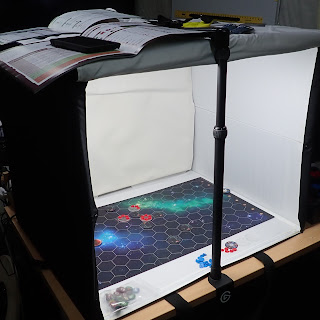Steaming Music the Licensing issues.
The ATEM connected to an SSD to record the concert and then to be edited later to make into a video. Now many churches have WiFi so now it is just as easy to stream the concert as long as all the music licensing issues are solved first.
Even if the content is intended to be streamed in the USA, licensing music for performance and streaming in the UK has some differences in terms of the organizations and rules involved. Here's a breakdown:
Determine Ownership of the Song:
- Just like in the US, you need to identify who owns the copyright to the song. This could be the composer, lyricist, and/or their publisher. PRS for Music and the Mechanical-Copyright Protection Society (MCPS) can help with this.
Performance Rights:
- In the UK, the main body responsible for performance rights is PRS for Music. If you're performing live and streaming it, or if the music is played in the background of your video, you'll need a license from PRS.
- Do note, however, if your performance is intended for a global audience, including the USA, securing rights in the UK may not exempt you from needing additional permissions for other territories.
Synchronization License:
- If your video pairs the song with visuals, you need a synchronization license.
- You will typically need to negotiate this license directly with the copyright holder, which could be the music publisher.
Mechanical License:
- For the rights to reproduce a song (like in a cover), in the UK, this falls under MCPS. If you intend to make copies or distribute recordings, you'll need to navigate this with MCPS.
YouTube’s Content ID System:
- Regardless of where you are, if you're uploading to YouTube, you'll encounter Content ID. It works the same way as it does in the US, flagging copyrighted content and following the policies set by the rights holders.
Purchase Sheet Music:
- Ensure you have a legal copy of the sheet music if you're using it for your performance. There are various UK retailers and publishers that can provide legitimate copies.
Streaming in the USA:
- If your content is intended for an American audience on YouTube, even if you've secured all the necessary rights in the UK, you might still need to consider American licensing bodies and their requirements, such as ASCAP, BMI, and SESAC. The internet's global nature makes territorial rights tricky, and platforms like YouTube have automated systems that don't always recognize international licenses.
- For comprehensive protection, especially if you anticipate a large American audience, consider obtaining the necessary licenses in both the UK and the US.
Stay Updated:
- Always stay informed about YouTube's terms and conditions and be aware that they might have different copyright agreements in place with different territories.
Professional Guidance:
- It's always wise to consult with a professional or legal expert familiar with music licensing in both the UK and the USA to ensure you're fully compliant and covered.
In essence, while there are parallel structures in place in the UK to the USA for music licensing, the two systems operate independently. Ensure you're compliant in both territories if you intend to broadcast to both.



Comments
Post a Comment